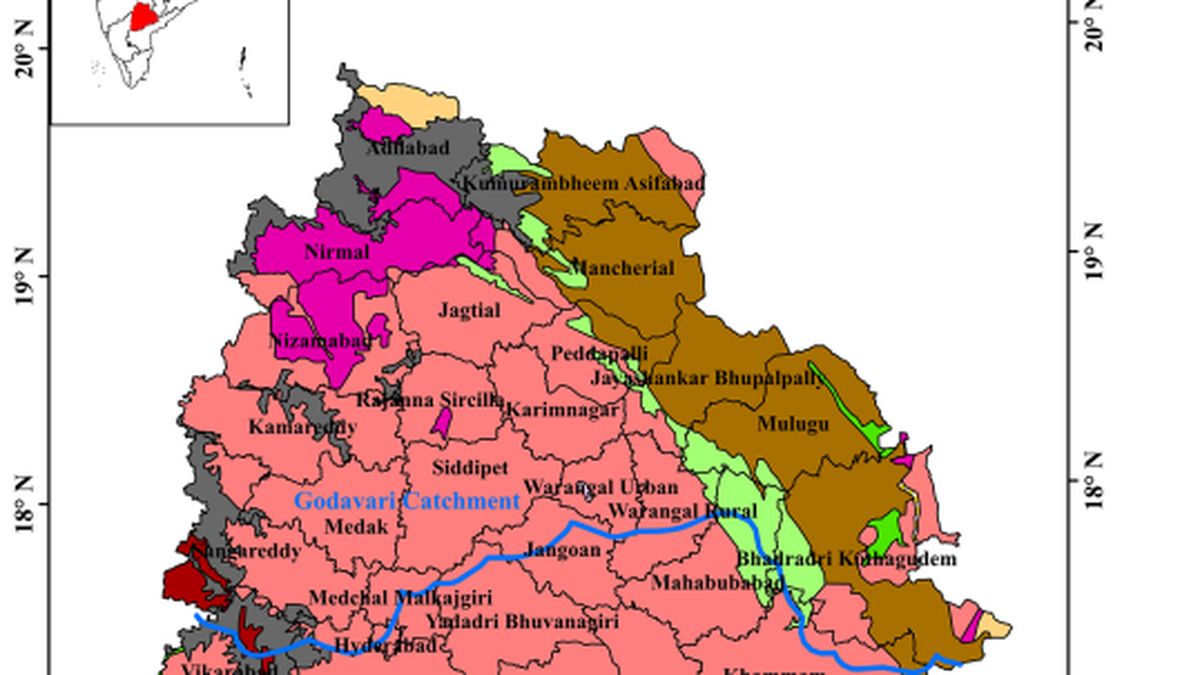Now Reading: CSIR-NGRI Study Warns of Rising Rainfall and Temperature in Telangana, 59% at Risk
-
01
CSIR-NGRI Study Warns of Rising Rainfall and Temperature in Telangana, 59% at Risk
CSIR-NGRI Study Warns of Rising Rainfall and Temperature in Telangana, 59% at Risk

Quick Summary:
- Projected Climate Impact in Telangana: A CSIR-NGRI study predicts a 15%-50% rise in precipitation and temperatures increasing by up to 2.94°C across the Krishna and Godavari river basins, significantly impacting agriculture and water availability.
- Vulnerable Populations Rise: The percentage of vulnerable people is projected to increase from 28% early in the century to 59% by mid-century.
- Agricultural Implications: Increased evaporation and altered monsoon patterns highlight threats to agriculture, which employs over half of Telangana’s workforce. Peak water flow is expected to extend from July-November instead of July-October historically.
- water-Stressed Crops Risk: Crops like rice and cotton may exacerbate hydrological imbalances due to high water consumption, raising sustainability concerns amid expanding agricultural areas.
- Recommended Adaptation Strategies:
– Shifting focus toward less water-intensive crops like millet/grain legumes.
– Efficient groundwater management via rainwater harvesting/recycling.
– Building ponds/percolation tanks for groundwater recharge during monsoons.
– Launching farmer awareness programs for climate-resilient practices.
Indian opinion Analysis:
The findings point toward critical shifts needed in Telangana’s agricultural sector as climate change threatens customary practices dependent on monsoonal rains and freshwater resources. While increased rainfall offers some relief, simultaneous rises in surface runoff and decreased vegetation evapotranspiration undermine its benefits. This underscores the urgent need for diversification towards less resource-intensive crops alongside structural solutions such as better groundwater recharge mechanisms.
Adopting proactive measures suggested by scientists-including crop rotation incentives, infrastructure adaptations (ponds/tanks), and promoting choice cropping systems-could mitigate risks posed by a warmer climate with altered precipitation patterns. These changes echo broader enduring agriculture goals crucial not only for Telangana but India at large amid unfolding global climate challenges.

























